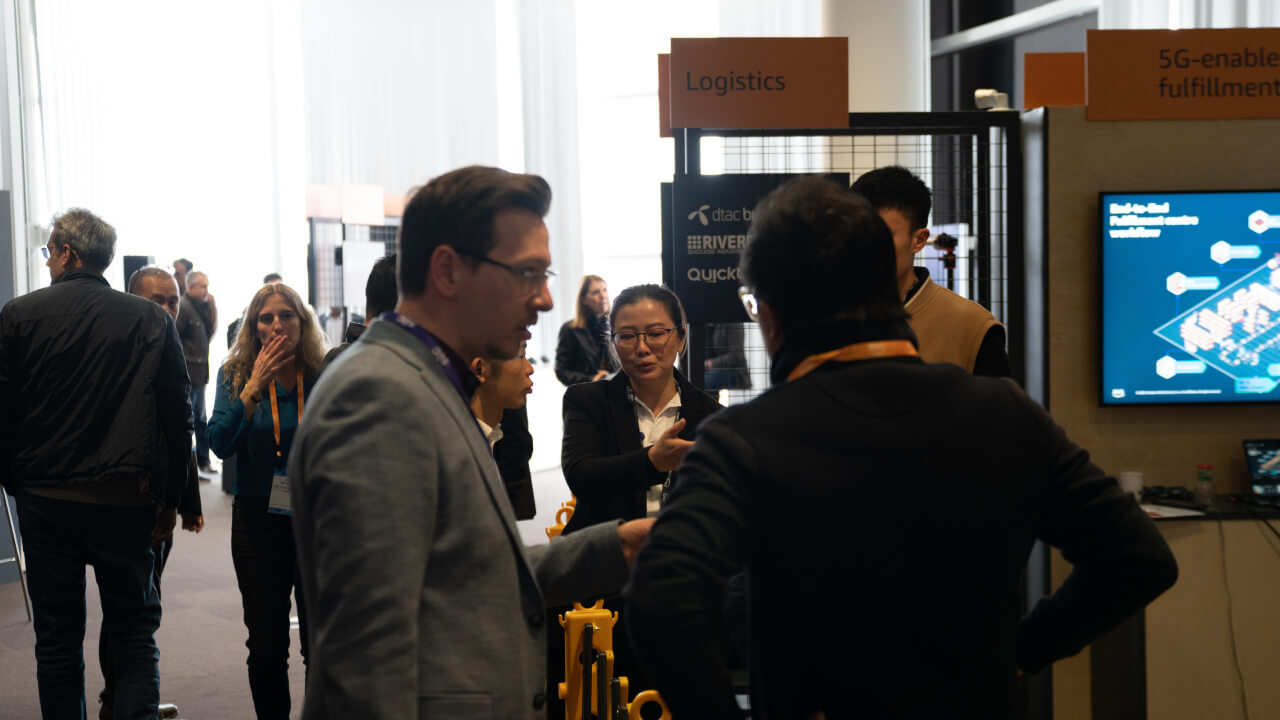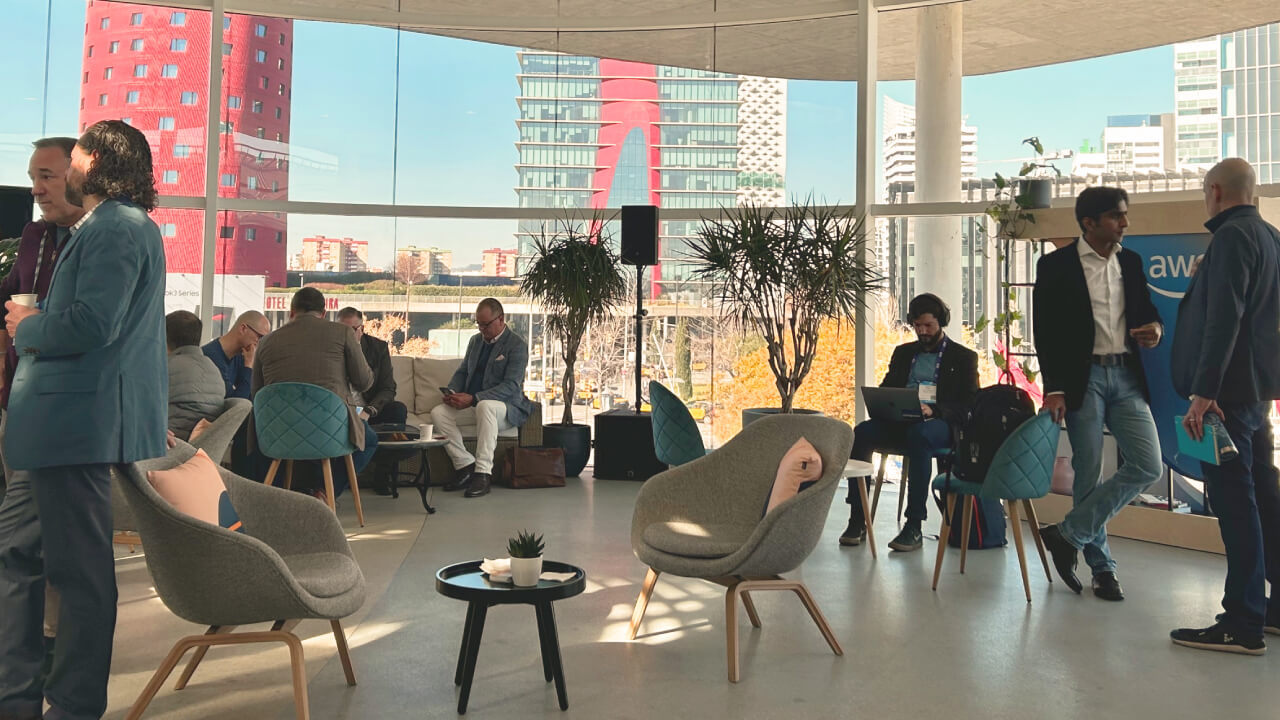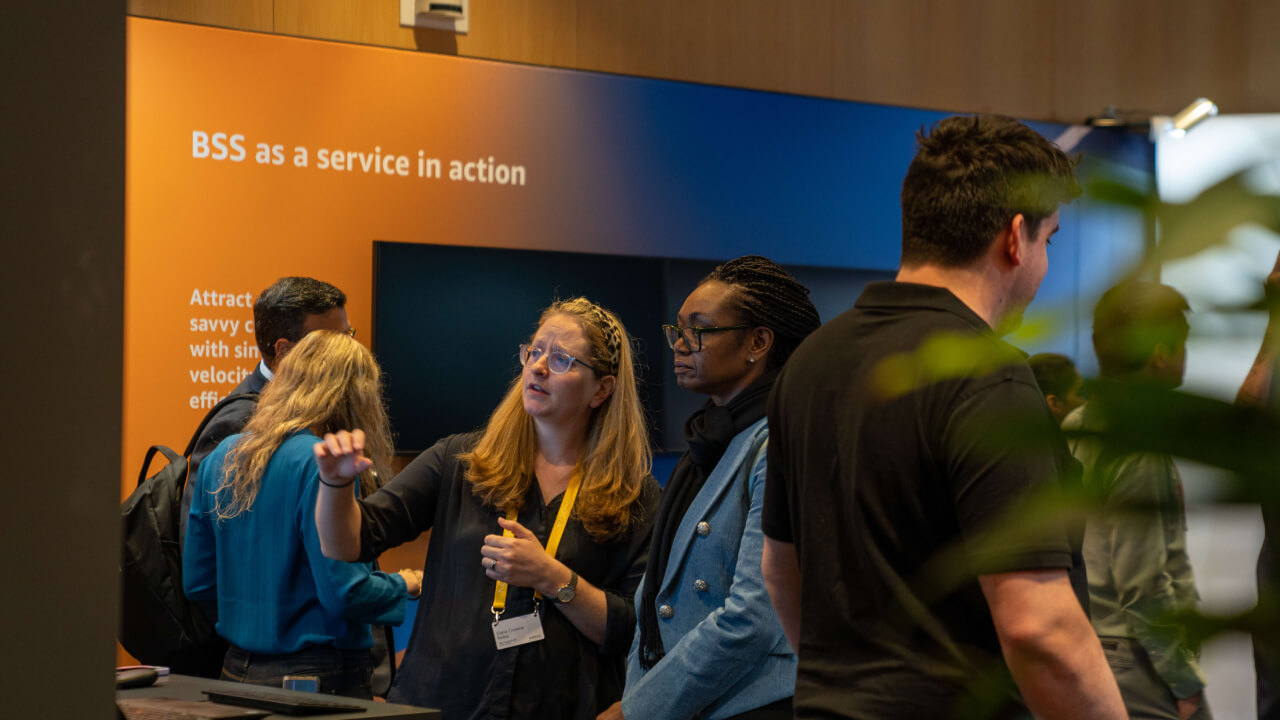AWS, Microsoft and Google Cloud at MWC23 represents a continued evolution in how the telco industry sees itself and the future of its networks.

The headline question may be over-the-top. No one really "wins" a trade show. There's no public tally of how many companies improved their business prospects vs. how many were outdone by competitors.
The only tallying left is for the show's organizers to count the receipts and celebrate that amazing wrinkle in their business that allows them to charge a network operator tens of thousands for renting a convention center Ethernet connection all week.
Figure 2:  (Source: Photo courtesy of AWS)
(Source: Photo courtesy of AWS)
Big Cloud: The big story
We bring up AWS and its hyperscaler peers because, unofficially, they were the story of MWC23. They were on the ground, in the news, around the show floor and on the lips of every telco executive trying to spin a story about where their network is going.
"How many of this year's MWC visitors were from AWS, Google Cloud and Microsoft Azure is not known, but all three were more visible than ever before," wrote Iain Morris. "The telcos need Big Tech more than cash-rich Big Tech needs the telcos."
AWS stood out because it is the pace car in this race to cloudify telcos. This wasn't a coming-out party for AWS, but a strong showing after years of convincing that it provides one of the few paths forward for them to cut operating costs to an acceptable level.
We've reported on how the cloud giants are differentiating their offerings from one another, as they lead telcos on a journey to a more modern network. What remains to be seen is how far each telco will go in that journey. "Many telcos are moving their IT operations and business support systems (OSS/BSS) to the cloud, often to public clouds, but most are stopping short of moving network functions to public clouds," wrote Mike Dano, in late January.
Figure 1:  (Source: Kelsey Ziser/Light Reading)
(Source: Kelsey Ziser/Light Reading)
AWS: From 'should we' to 'show me how'
Here's how Ishwar Parulkar, chief technologist for the telco industry at AWS, summarized his company's telco industry reckoning and its presence at MWC23, when asked via email by Light Reading.
"AWS has been focused on the telco industry for several years now. Our work started back around 2017 when the telco industry was starting to look at virtualized, software-defined networks, mobile edge computing and 5G," Parulkar said.
Parulkar, a former engineer and network architect at Cisco, noted that AWS started building solutions specifically for telcos at that time to help them lower costs and open up new sources of revenue. "We even incubated a business unit focused on this vertical with a goal of making AWS the best place to run 5G workloads," he said.
The tipping point came in 2021, when AWS powered the 5G network launch of Dish Wireless. Since then, Parulkar said, the pace has picked up and more telcos are adopting cloud technologies as a key component to lowering their costs and launching new services.
"This year, we felt a shift at MWC – conversations have moved from 'should we' to 'show me how,' and a greater focus on how we can work together to create new solutions to monetize their assets...
"I think we're at an exciting moment in the industry, and we see cloud as a big part of the next chapter," he said.
Some corners of the telco industry still worry about losing their identity as they rely on hyperscalers for more. But the cost of not moving as fast as the hyperscalers can take you is also a business risk for telcos.
Maybe we can't declare that someone "won" MWC23. But it is clear from what our team reported that the path of the telco of the future, whatever that looks like, runs through AWS and its peers.
Figure 3:  From cloud computing to BSS as a service, telcos are weighing how much they should turn over to cloud providers.
From cloud computing to BSS as a service, telcos are weighing how much they should turn over to cloud providers.
(Source: Photo courtesy of AWS)
Here's a summary of our AWS and hyperscaler coverage from the past few days, including key announcements and video interviews:
Telia unveiled a video-recognition system for a logistics customer that uses a virtual private 5G network combined with AWS edge computing
How, and why, T-Mobile partnered with AWS for private wireless (video interview)
Related stories and posts:
Light Reading's MWC23 coverage
Light Reading's latest podcasts
— Phil Harvey, Editor-in-Chief, Light Reading
About the Author(s)
You May Also Like











